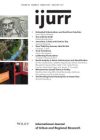Despite the fact that much literature has focused on the centrality of heritage to urban regeneration and economic restructuring in Western cities, heritage production has remained largely absent from accounts of urban studies in the context of China. This article addresses this neglect by examining the process of constructing an invented heritage (Mu Palace) in Lijiang Old Town in China, and how town residents have responded to this invented heritage. Drawing on a framework situated in urban political economy and the cultural politics of heritage, this article analyzes the local government’s role as the principal actor in integrating Mu Palace into locational policies aimed at achieving urban competitiveness and reaping economic returns. Simultaneously, the article asserts the dissonance in which local residents contest the state’s efforts. It sheds light on local ruling elites’ entrepreneurship in mobilizing urban heritage for economic growth and political control, and on how locational policies of place‐making are contested by ordinary people in China.
Details
Written by:
XIAOBO SU
Digital Object Identifier (DOI)
10.1111/j.1468-2427.2010.01011.x
About DOI
Read full article as PDF
Read full article as HTML
See the references for this article
